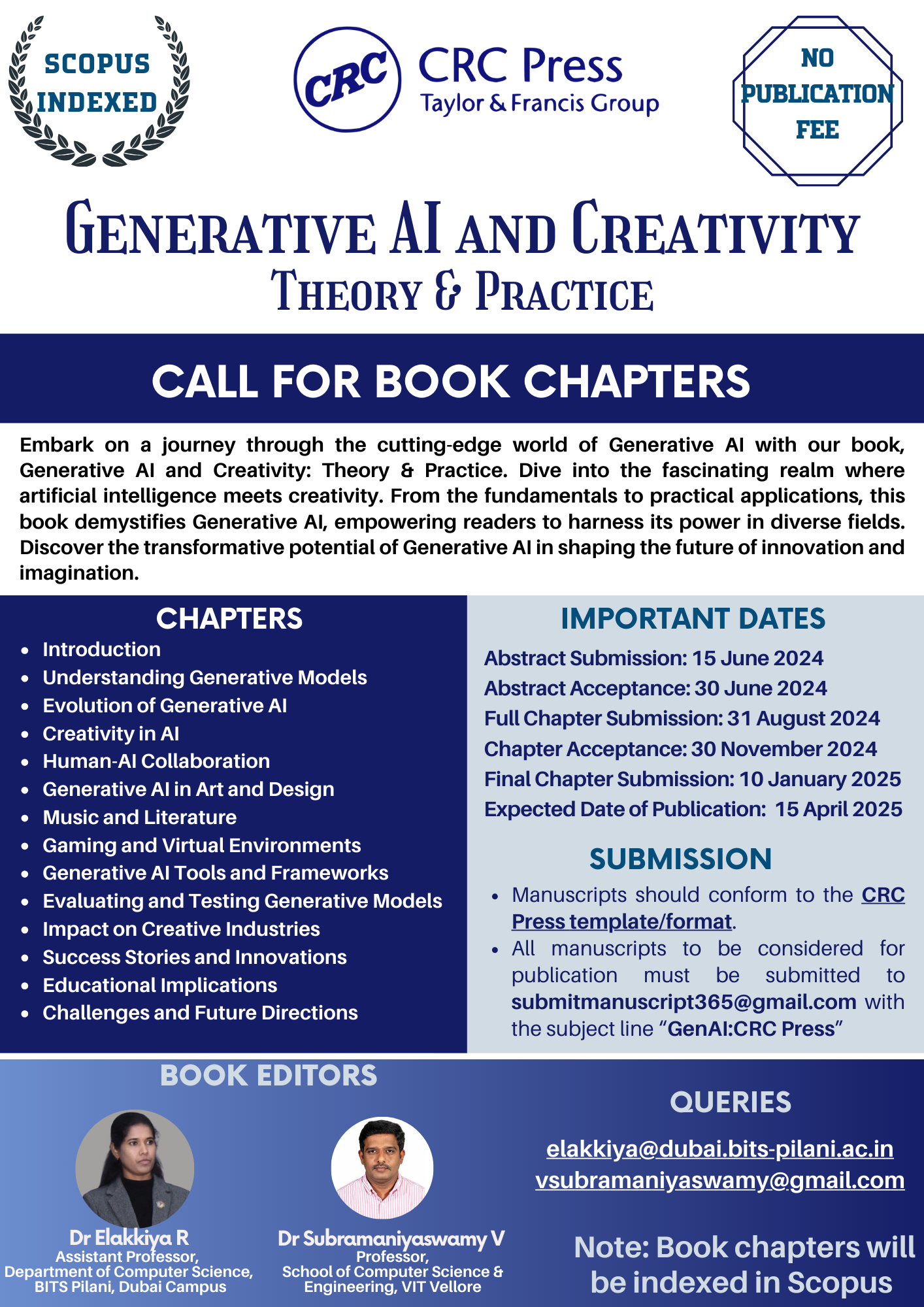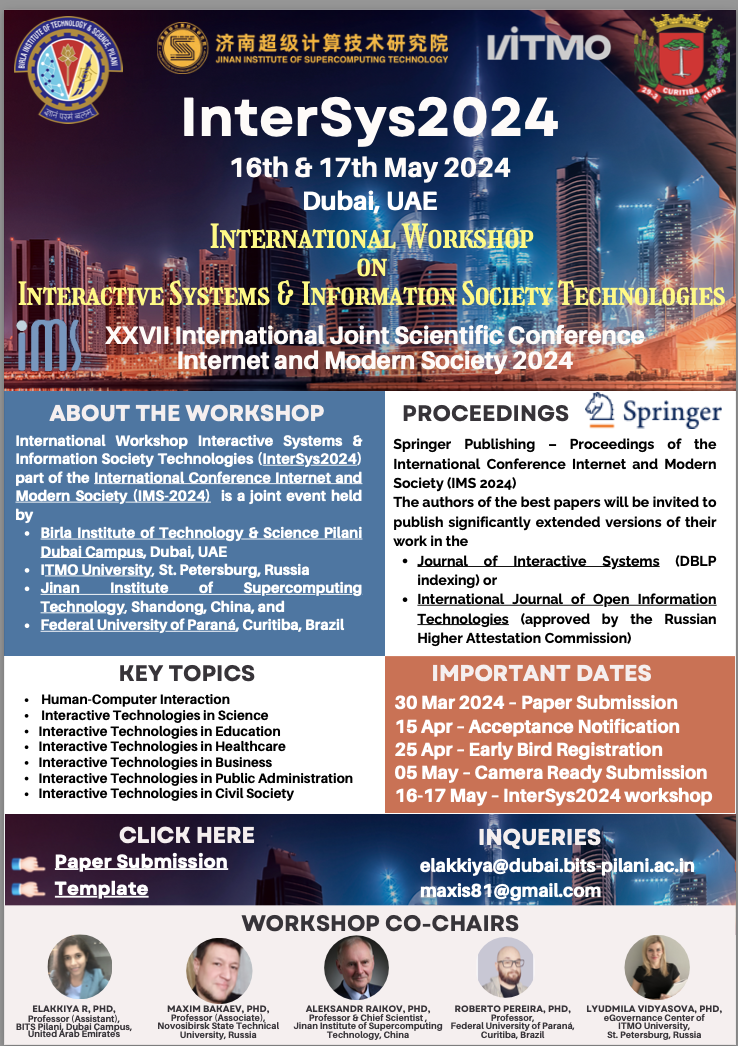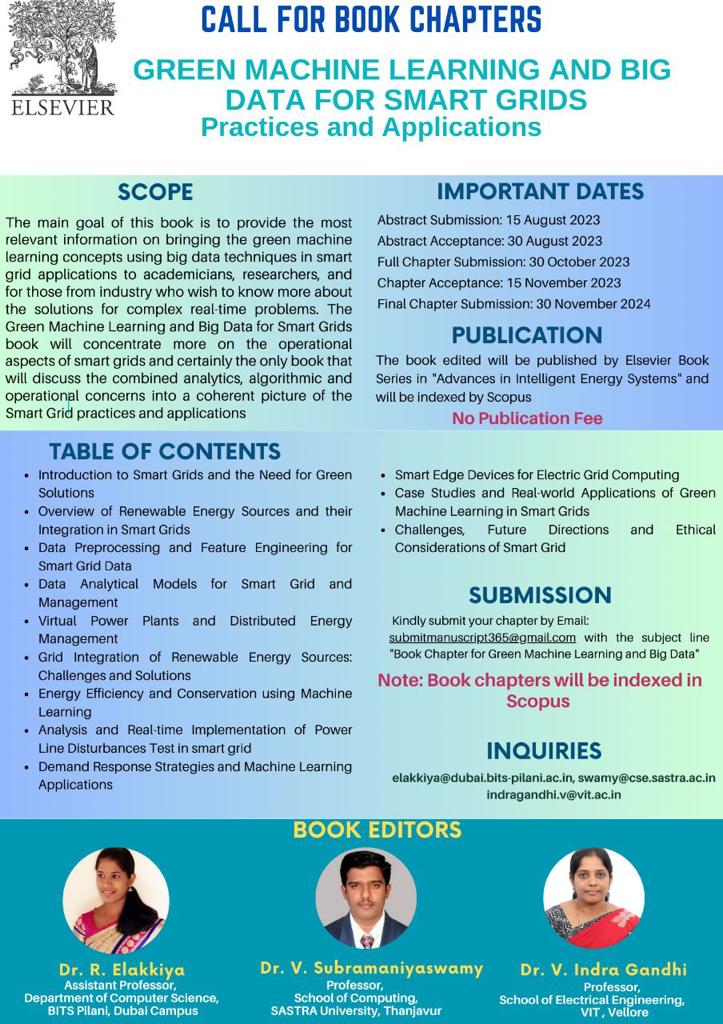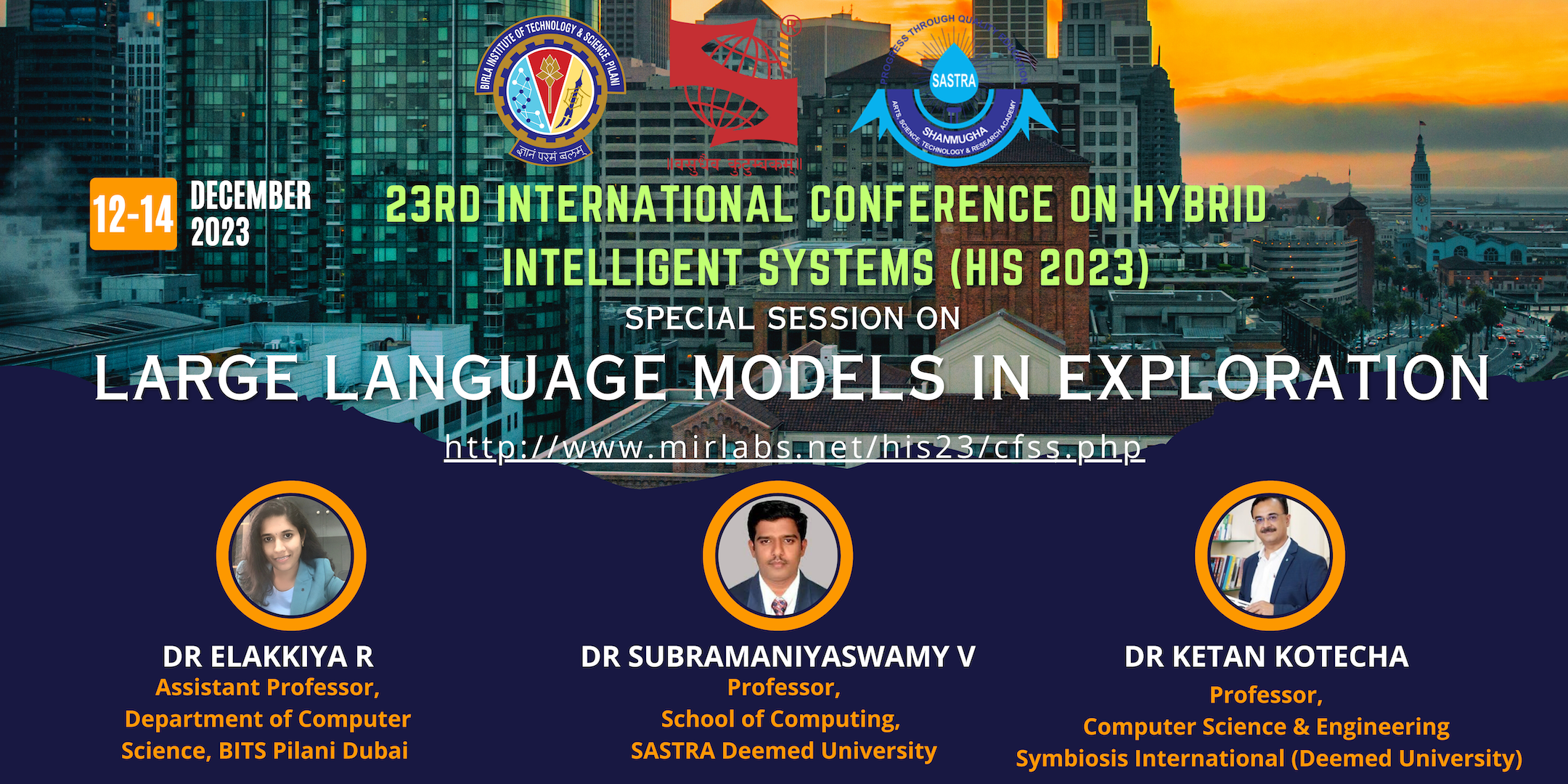Special Session Organizers
Dr. Elakkiya R
Department of Computer Science, Birla Institute of Technology & Science Pilani, Dubai Campus, Dubai, United Arab Emirates
Email: elakkiya@dubai.bits-pilani.ac.in, elaelakkiyaceg@gmail.com
Profile: Homepage | Google Scholar | ORCID
Dr. J. Angel Arul Jothi
Department of Computer Science, Birla Institute of Technology & Science Pilani, Dubai Campus,Dubai, United Arab Emirates
Email: angeljothi@dubai.bits-pilani.ac.in
Profile: Homepage | Google Scholar
About The Session
The purpose of the special session "Generative Artificial Intelligence for Text" is to provide a lively platform for the examination and debate of current developments, difficulties, and uses in the developing field of generative AI that are particularly relevant to text-based data. This session encourages scholars, practitioners, and industry experts to share ideas and contribute to the developing field of AI-driven text generation, with an emphasis on promoting collaboration and knowledge exchange. Natural language processing (NLP), the newest text generation models such as GPT and BERT, sentiment analysis, opinion mining, language translation, and the crucial elements of explainability and ethical issues in AI text creation are just a few of the many topics of interest.
Beyond theoretical considerations, the special session will include real-world applications of generative text models. The goal of the session is to present practical applications and illustrate the observable effects of AI-driven text generation in a variety of fields, from content creation to the building of sophisticated chatbots. The organizers are dedicated to establishing an inclusive environment that fosters multidisciplinary communication and cooperation as the area develops quickly. It is intended for this special session to serve as a hub for cutting-edge techniques, applications, and approaches, all aimed at collaboratively influencing the direction of AI-driven text generation.
Related Topics but not limited to:
1. Text Generation Models for Natural Language Processing (NLP) (e.g., GPT, BERT)
2. Language Translation and Multilingual Models
3. Sentiment Analysis and Opinion Mining
4. Text Generation: Explainability and Interpretability
5. Applications of Generative Text Models (e.g., chatbots, content creation)
6. Ethical Issues in AI Text Generation
Paper Submission
Manuscripts should conform to the IEEE template/format. All manuscripts to be considered for publication must be submitted by the deadline through the SETCMS, while selecting the “SSI: GenAIText” from the topic-box.


 An Institute of Eminence
An Institute of Eminence











